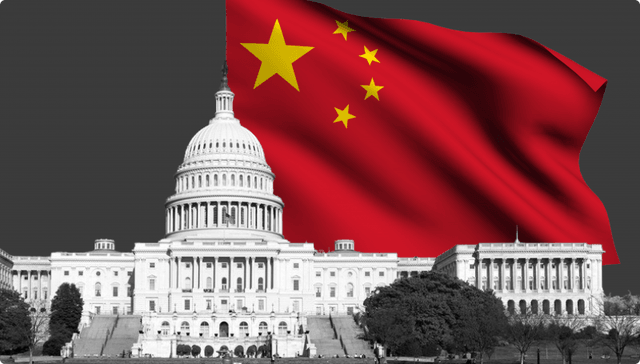Stock Market Crash Today – China Suffers The Worst Crash Since 2008

Trump’s tariffs are sending shockwaves across the world. After winning the elections on the back of returning the economic power to the United States, the US President is making decisions of large magnitude.
Following the tension with main trade partners, Canada, Mexico, and China, Donald Trump has announced elevated import tariffs on almost every country. With executive orders aiming at improving the US economy, the Asian stock market crash today is one of the worst in history. Let’s review the market performance and the impact of Trump’s tariffs.
Asian Stock Market Crash Today: What Happened?
On April 5th, Donald Trump announced significant new US trade tariffs, imposing a universal 10% on all countries, with higher rates on specific economies for national security reasons. Asian markets, as the leading global exporters, were impacted largely by this decision.
The MSCI Asia Pacific Index experienced its steepest decline since the 2008 financial crisis. Taiwan’s stock market fell nearly 10% after being slapped with a 32% tariff, triggering a circuit breaker and halting trading temporarily.

Analysts warn that escalating trade tensions could lead to broader economic disruption, with decreased capital expenditure and consumption. However, President Trump defended the tariffs as necessary measures to address trade imbalances, stating, “Sometimes you have to take medicine to fix something.”
Chinese Markets
The SSE Composite Index, measuring stock traded at the Shanghai Stock Exchange, experienced a staggering drop of 7.7%, marking its worst trading day since the 2008 global financial crisis.

The fall comes after the sweeping tariffs on Chinese goods, escalating an already tense trade war. This created a nationwide investor panic, pushing tech giant stocks to tumble.
Alibaba’s shares plummeted by 9.9%, while Tencent dropped 7.5%. The banking sector also suffered, with ICBC and Bank of China each down over 5%.

Analysts say the massive sell-off is attributed to the fear that China’s export-driven economy will be hindered, which could slow growth and reduce foreign investment in the coming months.
Japanese Markets
The Nikkei 225 index dropped over 8% as investors reacted sharply to global trade uncertainties and concerns over a prolonged US-China trade war. Major exporters, such as Toyota and Sony, took significant hits.

The electronics sector was particularly vulnerable due to fears that supply chains could be disrupted and exports to the US would be suspended. Toyota opened on Monday at a near 6% drop while Sony lost 10% this morning.

Financial companies like Mitsubishi UFJ Financial Group also saw their shares dip by over 5%. Market analysts warn that the Japanese economy, heavily reliant on exports, could see declining output if global trade flows remain restricted. This might add more pressure to the already struggling central bank under deflationary risks.
Other Asian Markets
The Asian stock market news reached South Korea, Hong Kong, and India, reflecting widespread market anxiety.
South Korea’s Kospi index dropped 5.6%, with tech heavyweight Samsung Electronics falling over 6% and SK Hynix down 5.8%.
Hang Seng, Hong Kong’s stock market index, plunged 11.7%, suffering one of its steepest declines in years.
The BSE Sensex, tracking the top 30 firms in the Bombay Stock Exchange, dipped nearly 4% amid concerns over reduced exports.
Outlook: Will Trump Tariffs Crash the Stock Market Globally?
Analysts warn that continued escalation could lead to prolonged economic downturns and heightened fears of a global recession.
The global markets crash also affected the US, as the index and stock markets plummeted significantly, and investor confidence deteriorated. Goldman Sachs estimates that for every five-percentage-point increase in US tariffs, S&P 500 earnings could lose between 1% and 2%.
Economist Richard Wolff discussed how such a reaction was expected following the tariff increase. However, he highlighted how the representation of these executive orders affects investor trust and market stability.
To mitigate the crisis, experts suggest that diplomatic negotiations and potential policy pivots are essential. After expressing disappointment, Japan is considering negotiating a tariff reduction with President Trump, emphasising the role of diplomacy over ambiguity.
Conclusion
The stock market crash today across Asia, particularly in China, highlights the significant impact of escalating trade tensions on global financial stability.
Leading exporters like Japan, China, and Taiwan will suffer from supply chain disruptions, while US importers and consumers will bear massively increased prices.
The path forward remains uncertain as markets reel from the effects of new tariffs and retaliatory measures. Some countries decided to take the reciprocal way by imposing similar restrictions, while others favour peaceful negotiations to ease the situation.
Disclaimer: This article is for informational purposes only. It is not financial advice and should not be relied upon for investment decisions. Always do your own research and consult a financial advisor before investing.





